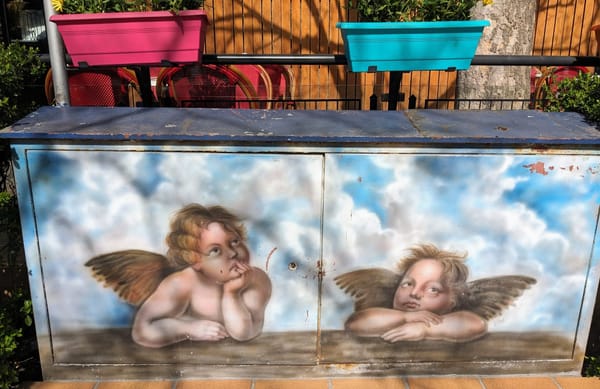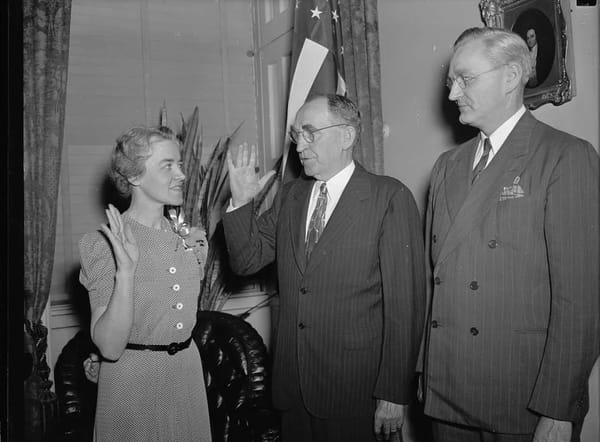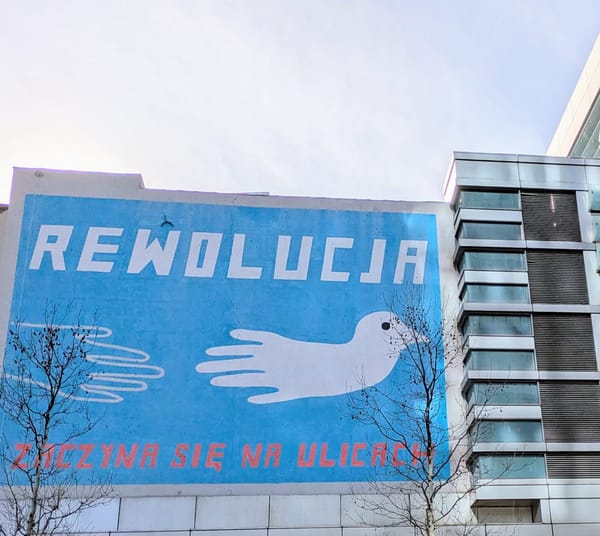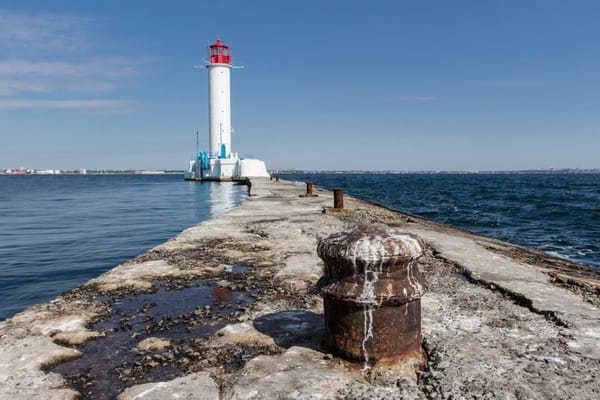Footballing Failure & a National Psyche
Thirty years on from a moment of glory, Bulgarian fans struggle with the decline of their national team, and what it tells us about challenges beyond the field of play
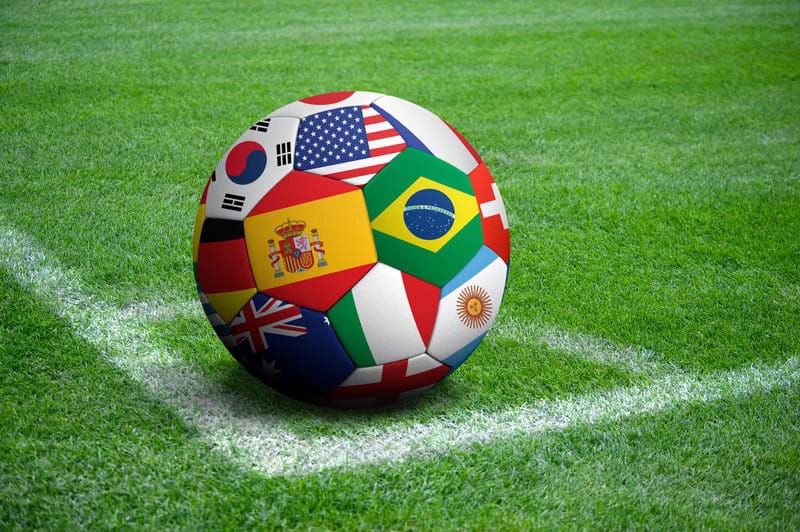
As Pope John Paul II famously put it, “amongst all unimportant subjects, football is by far the most important.”
Calcio, soccer, football—the shared language of this sport has become an essential path toward connection for many of us who have the privilege to travel abroad. Anthony Appiah once told Krista Tippett that sport is good way to “sidle up to difference.” It is a way to connect human-to-human via a shared interest. A path toward more meaningful and challenging conversations. When I think about moments when strangers from different cultures have generously and genuinely opened up about their lives and histories, football conversations often primed the pump. From Senegalese immigrants in Napoli to investigative journalists in Ukrain journalists, to hilarious Scottish scallopers, football chat has opened doors.
Notes from New Europe is a reader-supported publication. To receive new posts and support my work, consider becoming a free or paid subscriber.
In Bulgaria, however, the experience has been different. When I start to bring up football, people reflexively look away and shift their gaze. Some say “I’m not interested in football.” Others let out a sigh and say that while they once followed the sport, they now can’t engage. A few have been apologetic, sharing their embarrassment at racist incidents that (rightly) drew attention and condemnation in the English media. And almost everyone, even the people who still attend domestic matches, mentions how they believe corruption has ruined the sport.
This month marks a high point in Bulgarian football. Or at least it should. Thirty years ago the global game came to the US for the 1994 World Cup. Bulgaria made it to the semifinals, beating Germany en route to one of the most surprising underdog runs in the sport’s history. In some ways it was the first post-Cold War global tournament (the Warsaw Pact countries and former Soviet republics were still sorting out their shift from communism during the 1990 World Cup). Up until that point, Cold War US kids like myself would see Bulgarian athletes make the podium in individual Olympic competitions like wrestling, weightlifting, and gymnastics. A team sport? THE team sport?
And then Hristo Stoichkov started knocking in the goals. Stoichkov had become one of the top footballers in the world. He had a rough, menacing look, yet exhibited elegance in his skill and technique. He won the golden boot as the top scorer in the tournament as he and his teammates planted a Bulgarian flag on the global football map.
I had a chance last spring to talk about this moment with Boyko Vasilev, host of Panorama. Boyko shared some of his favorite moments from that time, including the joy, and awkwardness, of watching the win over Germany—a unified German team—surrounded by German hosts. While from the outside it looked like this was the beginning of something, the rise of a new football power, Boyko explained that this was, instead, a culmination of sorts. In some ways, they were the product of the time, mixing the strengths of two Europes as they became one. As he wrote last year in Transitions:
“The footballers from this golden generation became Bulgaria’s true and only modern heroes: Hristo Stoichkov, Emil Kostadinov, Yordan Lechkov, goalkeeper Borislav “Bobby” Mihailov. They embodied our biggest hopes; many considered them superhumans. These boys had luck in their timing: discipline, inherited from communism, and a chance to play in Europe’s best clubs, which came with democracy. Bulgaria had football talent earlier but no one else had hit this jackpot before.”
The success was fleeting, and the system that created that generational talent fell into disrepair:
“Youth football clubs failed to produce enough talent, paralyzed by bad organization and constant neglect. Stadiums fell into disrepair. Corruption scandals erupted, and reached the top of the football hierarchy. The public did not believe its eyes: what happened to our heroes?”

The 2024 European Football Championship wrapped up last week, and Bulgarian fans of the beautiful sport watched another major tournament without their country participating. Like Stefan Ralchev, a research fellow and expert on organized crime at CSD. Stefan has always been game to discuss the complexities of corruption and fandom, and remains an open-eyed follower of the sport.
Stefan has, as he says “in a way developed an immunity to this sad sentiment, not having Bulgaria play, and started to accept it as normal.” Yet he still watches, rooting for Italy internationally while continuing to support the oh-so-complicated club team, Levski Sofia. I checked in with him about the anniversary and the state of the game:
GG: What is it like to be a football fan in Bulgaria these days, when so many fellow fans either follow foreign leagues or have turned away completely?
Ralchev: It's not easy because Levski are in trouble - serious financial trouble with lots of debts. And worse, there is the incompetent management, led by President Nasko Sirakov. They are not interested in the well-being of the club but in their own well-being. One ray of hope is that we, the fans, are very well organised and regularly collect substantial funds to support the club. As you know, this is Bulgaria's most popular club and this is what makes the difference with other fans in Bulgaria - no other supporters have done such a feat to save their club from bankruptcy on a number of occasions, including when we had to organise the 100th anniversary of Levski in 2014 and managed to arrange and pay for a friendly with Lazio to commemorate it. Still Levski is something special and our attendance at games is second to none in the country. As for the national team, I don't show much interest in their games; I don't even watch them on TV sometimes.
GG: So what about leadership at the national level. What would you say are some of the biggest problems or challenges there?
Ralchev: The problem with the Bulgarian Football Union (BFU) is that it was completely captured by its former president, Borislav Mihaylov, and the clique around him, all of whom were stars in the 1994 World Cup. The situation was and is much resembling a captured state, as in the political sense of the term. Mihaylov resigned after pressure from public and protests (that were sometimes violent). His successor, Georgi Ivanov, is believed to be old wine in a new bottle - a continuation of old policies. Many of us were hoping Dimitar Berbatov (along with Stoichkov, one of the best Bulgarian footballers ever), a representative of the younger generation and also a candidate for the post, would manage to win it, but regrettably he didn't.
GG: Sounds like another example of a political process that isn’t working.
Ralchev: One reason may be the flawed system of election where every club has an equally weighted, single vote at the congress, and tiny clubs from across the country have the same weight as big clubs from the capital; this may seem democratic but in effect it is a prerequisite for corruption - many small clubs may be "convinced" easily to vote for a certain candidate, for example; I don't know if that's what really happened at the BFU congress, but I certainly don't like the risks here.
GG: As an outsider, I see an attitude toward corruption that is a bit like giving up—an acceptance that there will always be corruption in politics and government. Do you see the deterioration of football in Bulgaria since ‘94 as an echo of broken politics?
Ralchev: As I mentioned above, the state capture analogy is very relevant to me when we discuss Bulgarian politics and Bulgarian football. And I certainly believe the bad state of politics has had its impact on football, too. In a society, everything is connected: if high-level corruption is a fact, the judiciary is weak and cannot serve the interests of the citizens, and firms get captured by oligarchs, why should you expect that your football association will be any different?
GG: You don’t seem the type to just give up, so what are some of the steps that you think need to be taken against corruption and systemic decline, for the country and for football?
Ralchev: In both politics and football what is needed is a critical mass of thinking people (or clubs) to finally wake up and say "No more!" and act with dedication to change the system fundamentally - in elections but also between elections with civic activity for democracy and with honest voting by clubs at BFU congresses. Something to that effect happened in Bulgaria in the street protests of 2013 and 2020. But alas it wasn't enough and didn't last long, whatever change was actually accomplished. In football it would be even more difficult, as this is after all a system of private clubs and interests and we the fans are secondary and have even less say than citizens in a democracy.
Thank you for reading Notes from New Europe. This post is public so feel free to share it.
So fix football and the rest will follow? In a country that, at the moment, seems on a path toward a seventh parliamentary election in under four years? If only it were so simple. Though despite all the sports-washing and general corruption (yes, Bulgaria is not alone), global football continues to bring people together from vastly different communities. So perhaps it is a good place to start.
